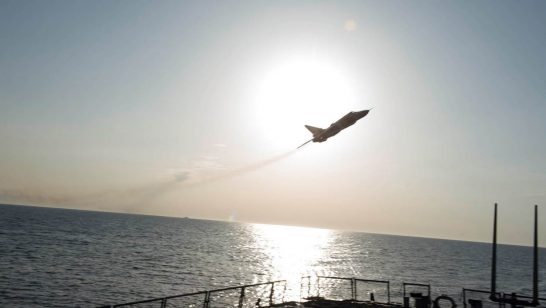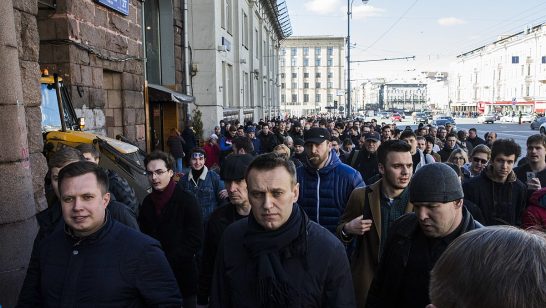
Ten years on from the invasion of Iraq, at the end of what US President Barack Obama described as a decade of war, British foreign policy stands at a crossroads.
To grasp the scale of the change and challenge before us, consider the following: amid budget cuts and political gridlock at home, our most important ally, the United States, is stepping back from its decades’ long role as the world’s “policeman”.
It is rebalancing its priorities towards Asia and the Pacific while reducing its level of engagement in Europe.
Europe itself is gripped by an economic and social crisis on a scale not seen since the 1930s.
The destiny of the Middle East hangs in the balance as violence and volatility marks the wave of change still sweeping that region.
And a global shift of economic power from West to East is under way, accelerated by the severe impact of the 2008 financial crisis.
In addition, the global climate crisis that is most likely to define the next half century has yet to see an effective international response.
Nuclear proliferation risks are growing.
And despite the recent economic gains in some developing countries, we continue to live in a world scarred by extreme poverty, deprivation, inequality and disease.
In the midst of all this, the anxiety that the future may not belong to the West is palpable and the public and political mood in the UK and across many other Western countries is one of unease.
We face difficult fiscal conditions at home and there is a palpable reluctance to commit, after the experiences of Iraq and Afghanistan, to the human and financial costs of further lengthy overseas interventions in conflict environments.
While we benefit enormously from our engagement in a globalised world economy and society, many today believe that policy-makers’ attention should, for now at least, be focused on matters close to home.
This leaves us with the profound challenge of how to re-think our way to a progressive UK engagement in international affairs that is in our interests but also addresses the reality of current circumstances.
This is no easy task, but it is a necessary one and there are some clear foundations upon which we must look to build.
First, we need to challenge the mood of pessimism.
The UK remains the seventh largest economy in the world and one of the world’s pre-eminent financial centres.
We hold membership not just of the EU, but also of Nato, the G8, the G20, the Commonwealth, and the United Nations Security Council.
Taken together, this gives the UK both the opportunity and the responsibility to exercise international leadership.
Talk of wider Western decline can also be too easily overdone.
The EU remains the largest single economy in the world, has the second largest defence expenditure after the United States and has some 57,000 diplomats compared to India’s 600.
The EU’s GDP per capita in purchasing-power terms is still nearly four times that of China, three times Brazil’s, and nearly nine times that of India.
The EU needs ambitious reform but to be effective on the international stage, the UK should try to lead such reform, not seek exit from the organisation.
Second, what this summer’s debate on possible military intervention in Syria revealed is that new thinking is needed about armed conflict.
This must start with doing more to prevent conflict in the first place, but where this approach fails and where the use of force by the international community is being contemplated, legal, strategic and public clarity around action is vital.
After Iraq, the bar of legitimacy – at home and abroad – has been raised.
This does not, however, mean inevitable policy paralysis.
The operation in Libya showed that the UK is still willing to act when the circumstances are right and where the test of legitimacy has been met.
The policy choice today is also not always between doing nothing and intervening with British and other Western nations’ combat forces.
Smart responses can involve restraint in the use of our own military while helping others to help themselves.
There is more we can do to provide financial, training and logistical help to those nearest today’s threats and trying to meet them.
Right now, an African Union force seeking to eliminate an extreme Islamist threat in Somalia is doing so without access to a single helicopter. It badly needs the help of the international community.
Third, while the reach of Brussels often makes the headlines, the generational challenge we must focus on is the rise of Beijing.
To do this, we need an “Asian step-change” in British foreign policy.
This needs to engage China on a range of issues from the Middle East and Africa to climate change and international crisis management. It needs to align our approach with our partners in Europe, perhaps via a joint visit by British, French and German foreign ministers to Beijing, Delhi and Tokyo.
And it needs to think through how we can link our major cities, not just London, but cities like Manchester, Glasgow and Birmingham, into the growth opportunities in China and the other Asian giants.
Fourth, in a world where power is diffuse and challenges cross borders, we need to renew and extend our efforts at multilateral cooperation.
We must work with others internationally to share information between tax authorities and to tackle tax havens, and help protect the tax take in both rich and poor countries in the process.
We must work with EU partners to provide economic assistance to those pursuing democratic transitions in the Middle east, and collaborate with Russia, Turkey and institutions like the Arab League and the Gulf Cooperation Council, to help shape developments in that region in a peaceful and positive direction.
We must push for the United States and Russia, the possessors of 95 per cent of all nuclear weapons on earth, to reduce their nuclear arsenals further as a key step towards bring other nuclear armed states, like the UK, into wider multilateral disarmament negotiations.
We must play a lead role, including via the European Union, in multilateral efforts to ensure that an effective and enforceable agreement is in place to cut global carbon emissions by 2020.
Last but not least, we need a focus on restoring our domestic strength as the essential foundation for our international role.
We need to renew investments in our infrastructure, take a fresh look at our education and skills policies to ensure we are preparing our citizens and students with the cultural, linguistic and other skills they will need to succeed in the global markets now opening up.
If we can do all this, our domestic and foreign policies can work together not only to improve the lives of our citizens but also to provide the resources we need for a confident and influential role on the world stage in the decades ahead.
This article originally appeared in The Scotsman on 30th October. Influencing Tomorrow: future challenges for British foreign policy is published by Guardian Books and the Institute for Public Policy Research (IPPR).
The opinions articulated above represent the views of the author(s), and do not necessarily reflect the position of the European Leadership Network or any of its members. The ELN’s aim is to encourage debates that will help develop Europe’s capacity to address the pressing foreign, defence, and security challenges of our time.




